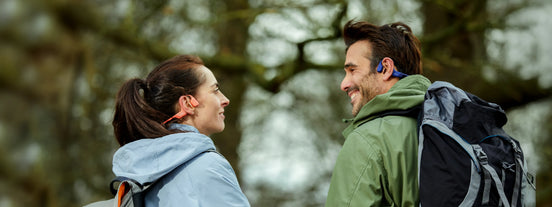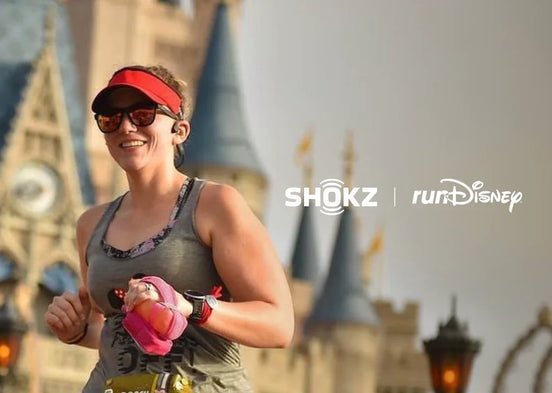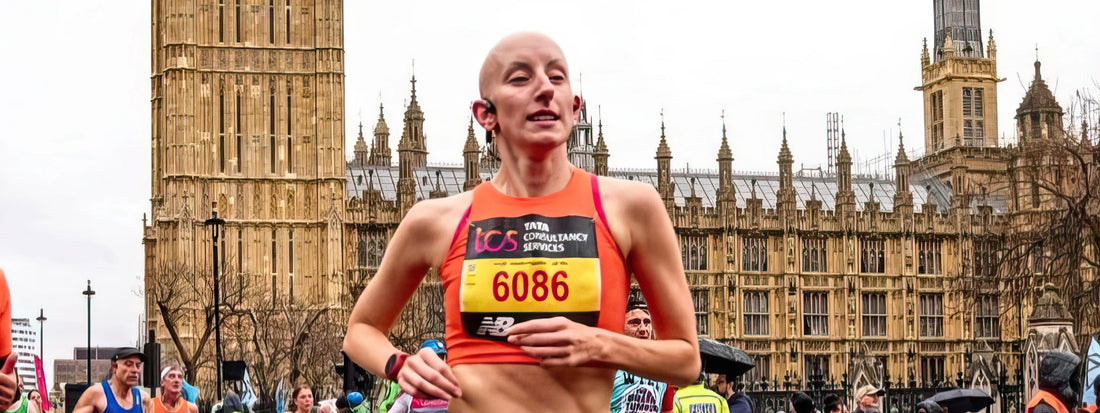
Finding Strength on the Trails - How Running Empowered Lindsay Walter
Have you ever met someone who radiates positivity and determination? That's Lindsay Walter in a nutshell. Imagine training for a 100-mile ultramarathon just days after crushing a 24-hour race. That's the kind of dedication that drives this ultramarathon champion. But she’s not just conquering trails – she's also conquering self-doubt and societal expectations with every stride. We caught up with Lindsay for an inspiring conversation about running, self-acceptance, and the power of pushing your limits.
Yidan Zhang (YZ)
When did you start your first running?
Lindsay Walter (LW)
So I did my first marathon in June of 2012 when I was a student. In college, I played basketball and was not a runner at all. But they had grandma's marathon in Duluth, where I was in college, and I would watch it every summer and just see my friends and so many people running grandmas. I'd be like, wow, that looks so cool to cross it off my bucket list. So I signed up, ran it, and there was just something about running. Team sports are great, and basketball is so great. But running is just so self-fulfilling, and empowering. Because with basketball, if you're having a bad day your teammates make it okay. Whereas with running, it's just you. And that's something that I loved so much.

YZ
Would you say that the thing that you love the most about marathons is the fact that it's you and you against yourself?
LW
Yeah, 100%. I think what I love about marathons and ultras is that I go into a race and it's never simply to win. It's like a time goal for myself. And I love that because you can't control what anyone else is doing. It doesn't take away my accomplishments so for me, that is what makes running so much fun. Because I'm not comparing myself to others, I'm running because I love it and my goal means so much to me. That helps keep motivation up during training. Just the me versus me.

YZ
What goes through your mind when you run, especially for that long distance?
LW
Yeah, that's a good question. It depends on the day, honestly. I feel like a lot of times, running is just such a great outlet for me. It's my favorite way to start the day. It's how I just deal with stress, or sometimes just not even thinking about anything. And I feel so empowered and strong and beautiful. And it was really through running that I learned to accept and embrace my alopecia. Something that I struggled with for a good 20 years. The fact that I was the one doing that, I was the one putting in the work and crossing those finish lines. And then, especially when it came to ultras, the mental toughness it takes.
I think everything I went through with alopecia, being bullied, and having to go through a lot made me so mentally strong, tough, and determined. And I'm never going to quit. No matter what the weather is like, no matter how tired I get. I think that's something that has helped me be successful in ultras. Just because I have that mental toughness. It makes me feel so good so, yeah, sometimes it's super deep thoughts, and sometimes no thoughts, just, like, running.
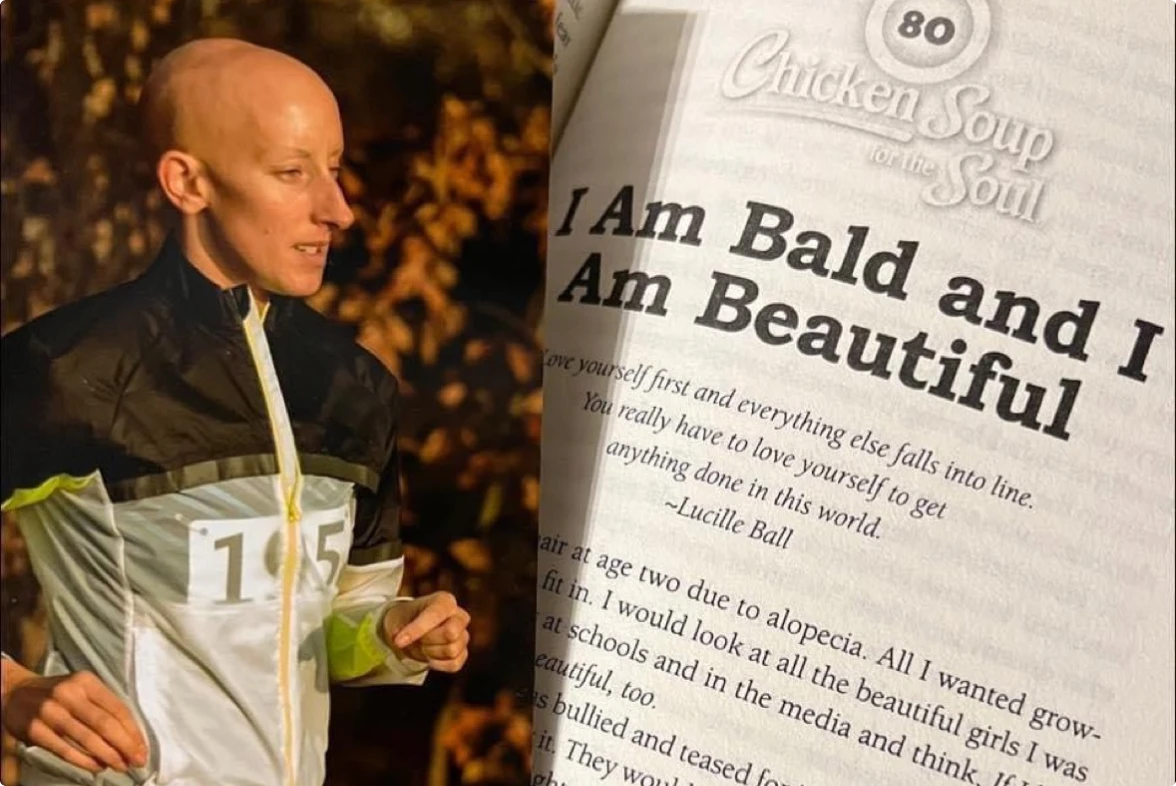
YZ
Can you tell us a little bit about your journey with alopecia? Because I know you were diagnosed pretty young, right?
LW
So I lost all of my hair when I was two. I was born with hair, and then, when I was about two, it all fell out. It fell out pretty quickly. I have universalis, so that's total body hair. So no arm hair, leg hair, or anything like that. And then I don't remember much of the original diagnosis, but my first real memory of my alopecia and being different is when I went to preschool. I wore a wig. I'm 33, so at that time, almost 30 years ago, social media wasn't a thing. There weren't a lot of resources. And so I didn't know anyone else with alopecia, and it was very isolating and lonely to have no one to talk to. I felt like I was the only person in the world.
And so that was hard, not knowing who to talk to and feeling so different from other kids. I mean, I wore a wig. It definitely looked like a wig. I didn't have any eyebrows or eyelashes, and so there were these physical features that everyone else had, and I didn't have. I couldn't really cover it up and as I got older. I couldn't really wear makeup just because I had very few eyelashes. I couldn't hide it the way I wanted to. And kids were just really mean. I always tried to be nice to people. I was very quiet. I honestly didn't do anything. So I never understood how someone could be mean to me and make fun of me.
I also didn't have the confidence to stand up for myself and just say, like, hey, yes, I have alopecia. This is a wig. I can't help it. I would just lie to people when they would be like, oh, is that a wig? And I'd be like, no, this is my real hair. Just because I didn't know what to say. And so it was hard. Middle school, first of all, it's hard for everybody just because you're in middle school, awkward and all that stuff. But then you add this physical difference that you can't help.
And then high school was kind of the same thing. The kids just were not nice. But that's when I started playing basketball and it became better because I had this healthy outlet. I wanted to be the best basketball player I could. I want to have success with that. And the more success I was having, breaking school records and getting noticed for college and all that stuff, helped me to accept my alopecia and worry about that less. But then I had the jealousy of other people and so that was another thing, too.
That was hard for me but it prepared me a lot for my adult life now and the same kind of stuff I deal with. Now, not wearing wigs, I feel the most like myself with my bald head, which is such a dream come true. To reach this point where I'm very confident in myself and this is the person that I was always meant to be. I just never knew how to get there and how to tell people. That used to be one of my biggest fears. Like, when I stopped wearing my wig, there were a lot of people that weren't very nice and supportive. So in a way, alopecia has been a great filter for me. If not having hair bothers you, then you're not meant to be my friend.
Alopecia has also been like a whirlwind. I still have times in my adult life where people aren't nice and I do still struggle with it and how to respond because I'm like, oh, gosh, how can you be so mean and say something like that? But overall, I'm very grateful for my alopecia because it has made me super empathetic and it's made me strong and has taught me so much that I don't think I'd be the person I am today if I didn't have alopecia.
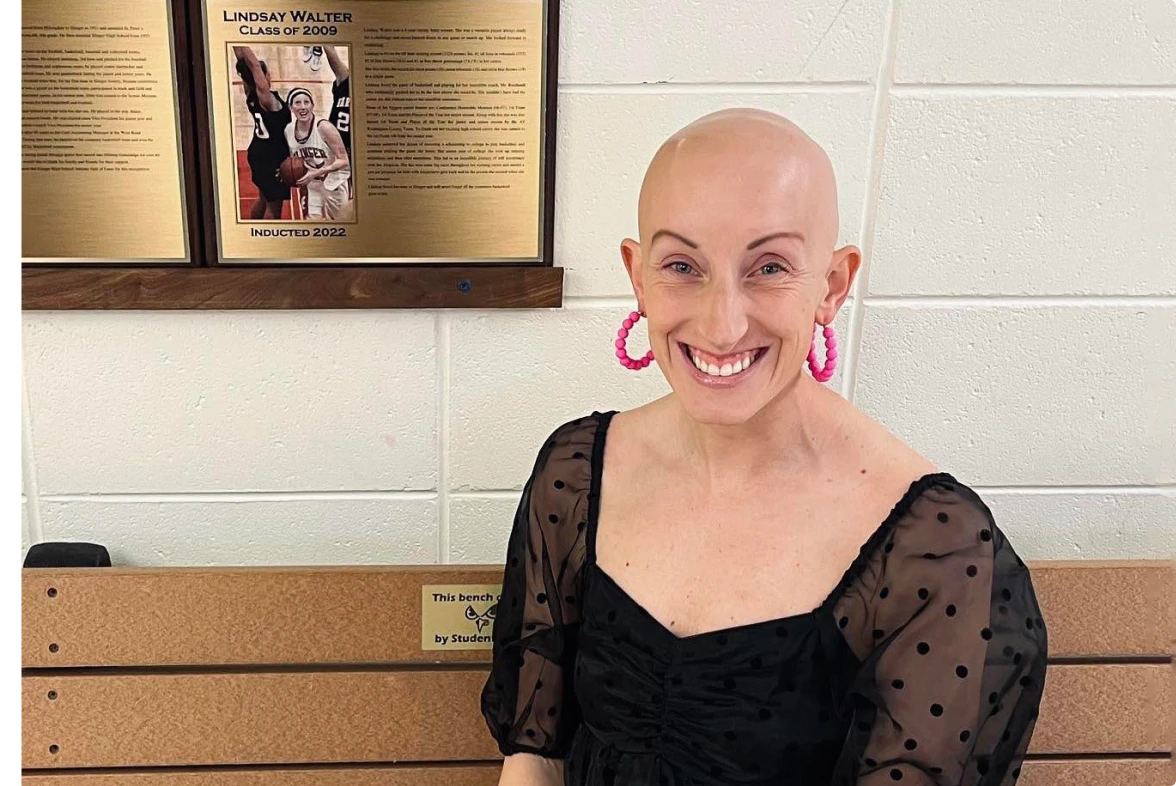
YZ
It seems more like a gift that made you so strong and beautiful. This might be a little bit of an odd question, but do you feel like there's a difference between being an athlete with alopecia vs. being a woman with alopecia?
LW
Yeah, for sure. I think that there is just such, I guess, kind of like a judgment as far as being a woman in society and not having hair. And, for me, that is a norm, but it's not accepted by society. And people are very outspoken and willing to say stuff and hold women to a very high beauty standard. And so being a woman and having alopecia is hard. Everywhere I go, people stare at me, and it's not because I have a cute outfit on, it's because of my bald head. And sometimes that’s something that I try not to feel self-conscious about and try not to focus on it.
But everywhere I go, whether they mean to or not, people stare, they do a double take and kind of whisper and I can just feel the unwanted attention. So, being a woman and not having hair is hard, and it's something that I'm going to have to live with for the rest of my life. And I don't think society is going to change or accept it. But I think it may have gotten a little better when you see how different women can be and their different styles and all that.
But then with being an athlete, a few things come to mind. I think sometimes with people not knowing what alopecia is, especially in a fitness setting, I get a lot of comments. People assume that I'm sick and they'll be like, okay, just keep fighting. Keep working hard. You just try your best.
Thinking back to this one race in particular, it's the greatest example of just the ignorance of people. I had run 110 miles, and the next morning the 50K started. I was walking a lap, and this guy who was running the 50K stopped and said "Just keep trying your best. Just walk. You're almost to 7 miles. You can do it." And I was like, bro, I just ran 110 miles. Don't tell me I can almost do it. And it wasn't because I was walking. It was because of the bald head. And I know people mean well. But it's this sympathy that makes that person feel good. But to me, it just is so frustrating. And so from an athletic standpoint, I get that sympathy in people until they're like, oh, wait, she's already run 100 miles. She's fine.
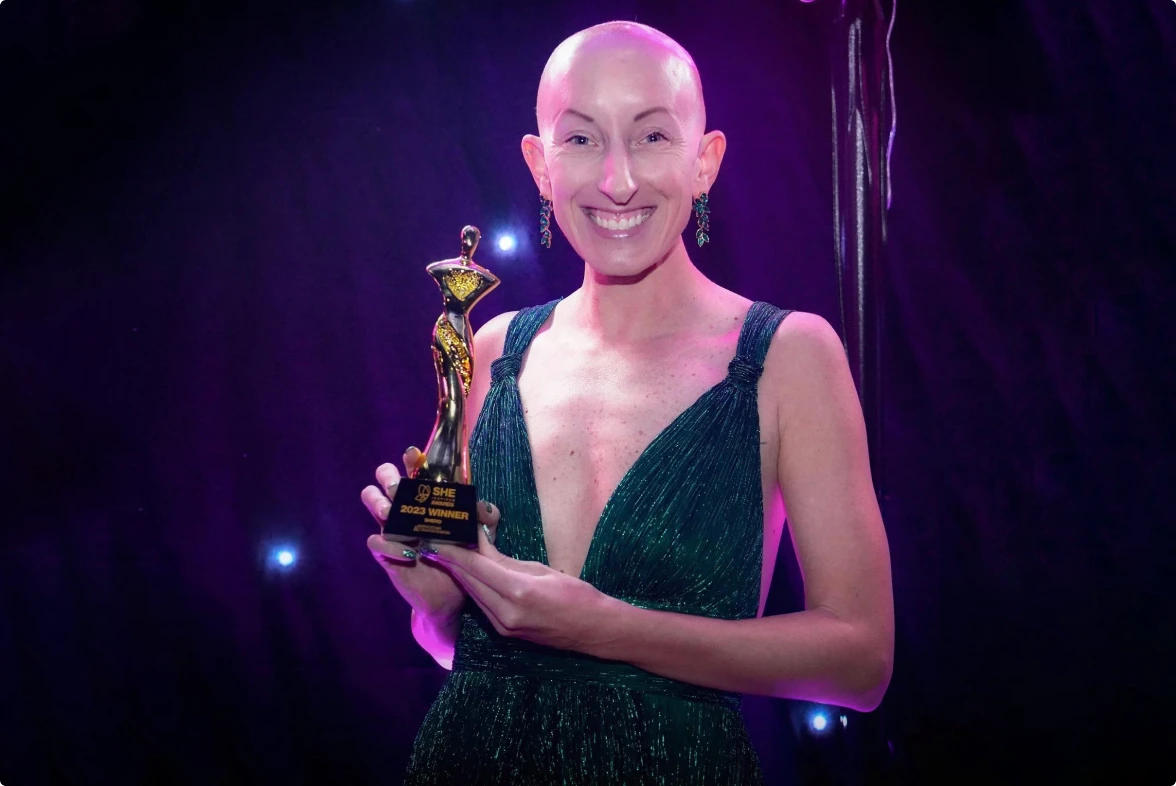
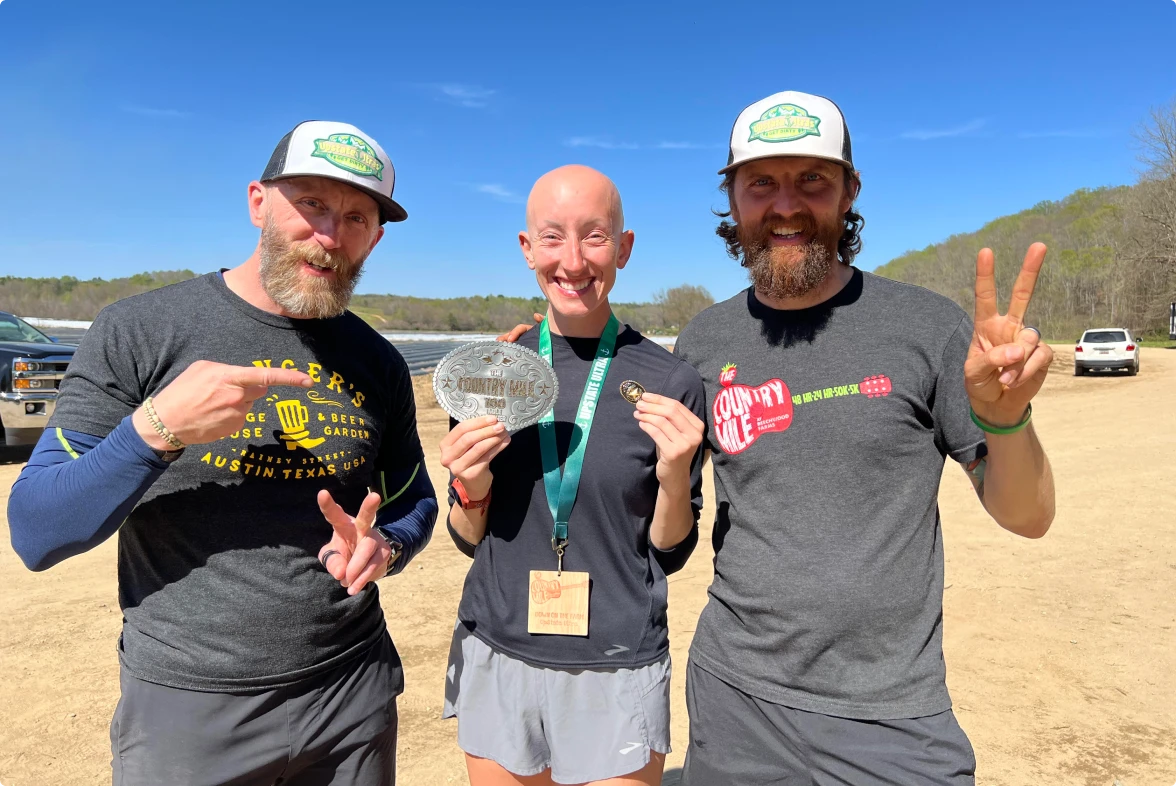
YZ
With the ultra-marathons, do you feel like there is interest among young girls and upcoming athletes?
LW
Yeah, I think ultras have started to become a lot more popular. I also think ultras, just in general, are very intimidating. When you think of 100 miles or even 50 miles, or you're out in the woods on the trails, you can spend a lot of time out there by yourself. You're running overnight and it is very intimidating. That's something that deters a little bit from it. So I would say the interest is there, but I think it's intimidating as well.
YZ
Hopefully, Shokz can have a little bit of an impact on the awareness of the sport.
LW
Yeah, Shokz is the best. You can wear them, but you can still be very aware of your surroundings, especially when you are out on the trails by yourself. Because you do have to be very aware and mindful of what's going around you. And so you can't totally zone out because you don't want to trip over rocks. But that's why the headphones are so great because you can still hear your podcast, but then you're still aware of what's going on.
With a marathon, it's a little easier to zone out because you have thousands and thousands of people so you're not going to get lost, but in an ultra, if you miss a marking on a tree, you're probably going to get lost.
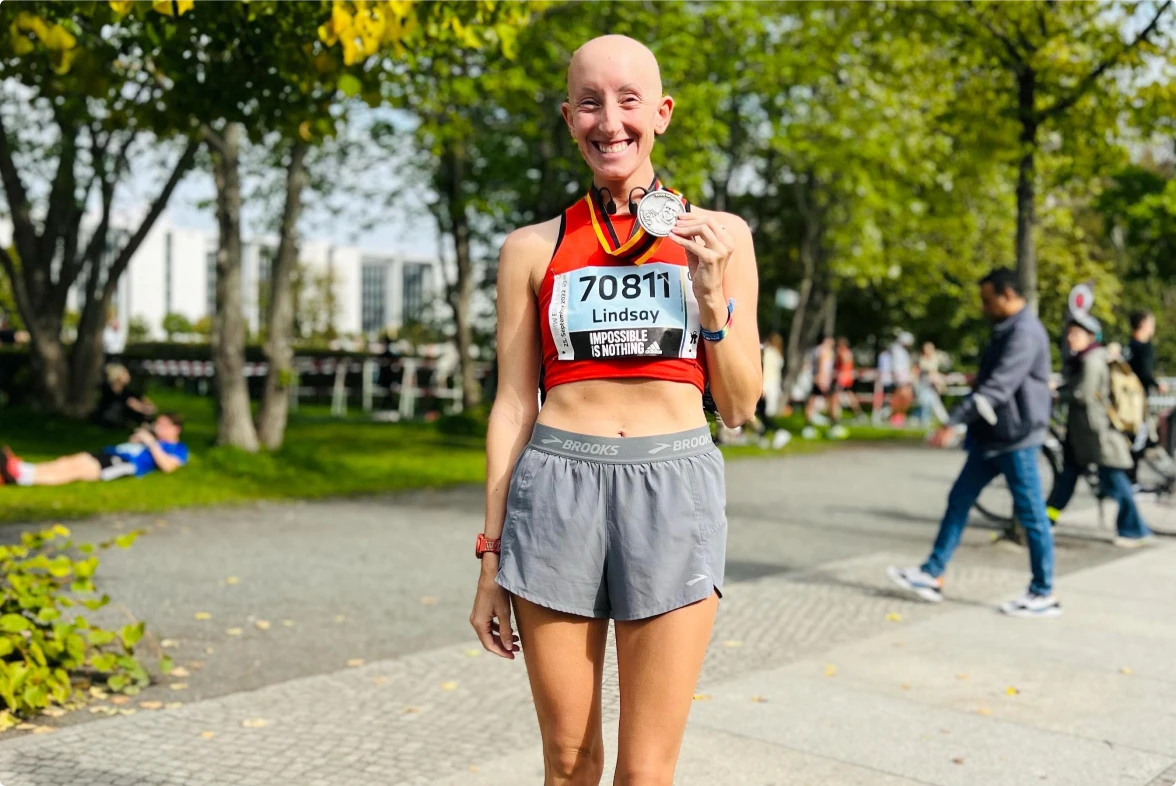
YZ
Have you had situations where you were like, oh, I'm so happy that I know what's happening around me?
LW
Yes. The night part of an ultra is the hardest because you're not sleeping and you're going all through the night with your little headlamp. So you have to be paying attention to the markings on the trees, whether it's a ribbon or a paint line because if you miss that you either have to backtrack and hope you find the trail, wait till you see another headlamp, or wait until the sun comes up, which could be hours. And you can be disoriented if you're getting tired and you don't have a quick caffeine source or something like that.
YZ
What first drew you to Shokz? Was it through running marathons?
LW
Yeah, definitely through running. I don't even remember how I heard of Shokz, but I was looking for something since I run and train by myself because I love that "me time". But then I was like, oh, I want to have music, but I also want to be aware of what's going on around me. And I loved how you can listen to it, but still be aware of everything around you. It just fit perfectly and it stayed on. And before that, I had never found a headphone that worked. Nothing would stay in my ear.
And I think also the factor of just not having hair, not having ear hair makes the headphones slide in my ear. I had tried other earphones, but the ones that go in your ear would slide around so much. And then I found Shokz and I was like, these are amazing. They have been the best headphones.
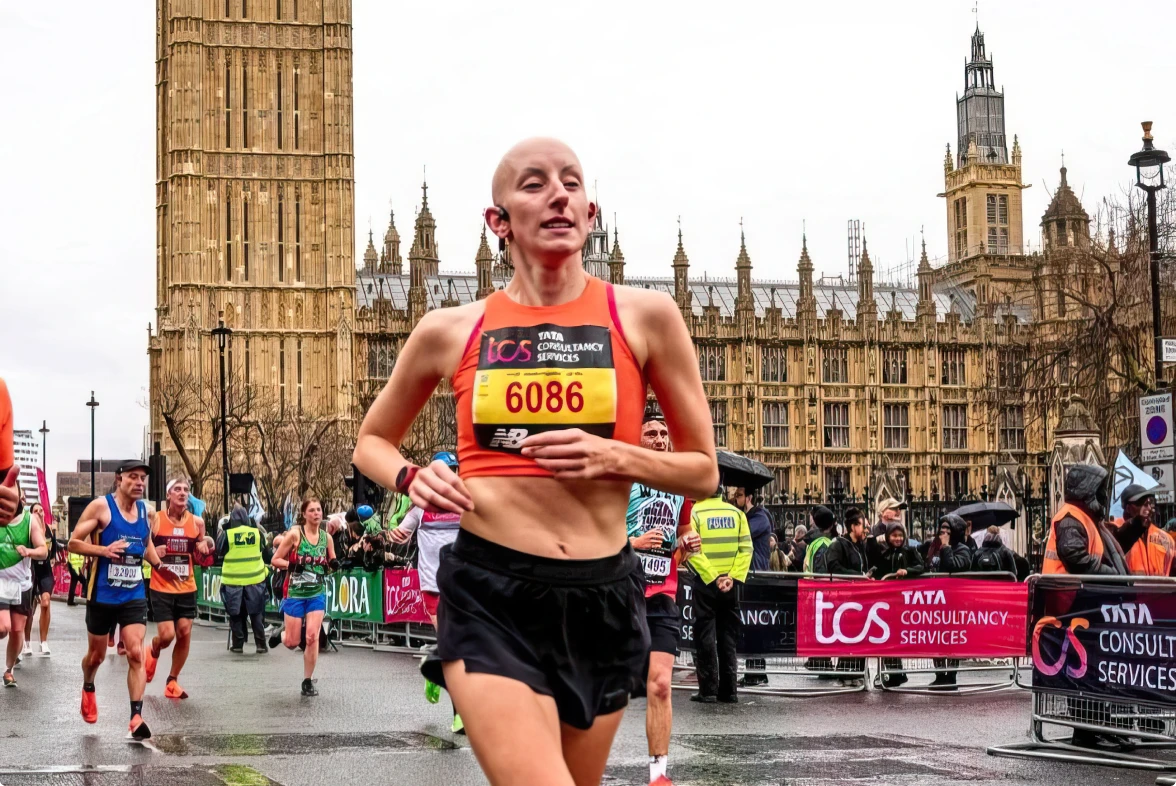
YZ
Do you have advice to give someone who would like to start running, but is unsure where to start?
LW
Never be afraid to try something and remember we're all beginners at something. I think back to my first marathon, I had never run a marathon. Just jumping into the marathon distance and not being afraid to try. And the only way you can really fail at something is if you don't try or if you just quit. That's one of the best things about running, whether you ran a six-minute mile or a 15-minute mile, you still ran a mile. And especially when you get to big races, the accomplishment of getting that race medal in crossing the finish line. You did that work, and no one can take that away from you. And I think that's why running is so great and empowering.

Author Information

guides on shokz

